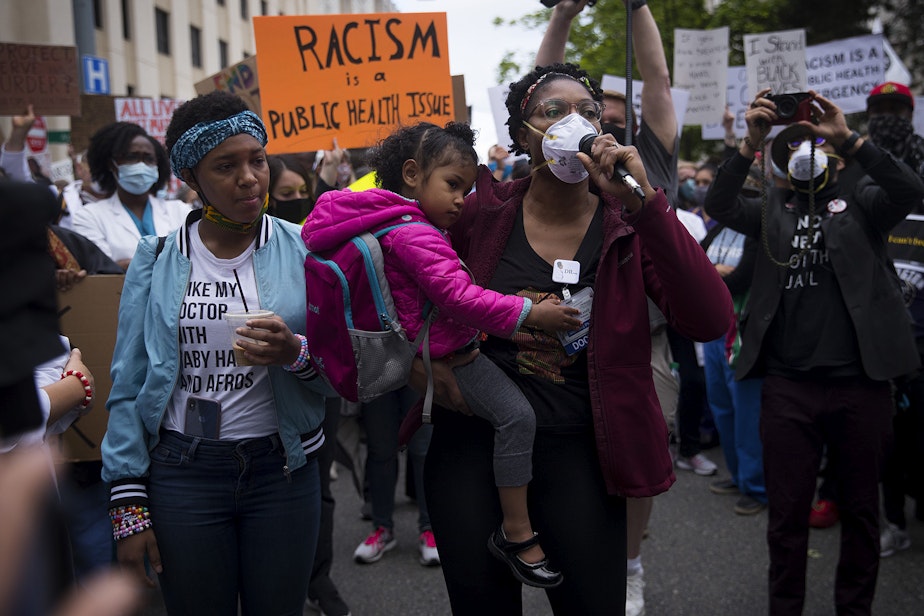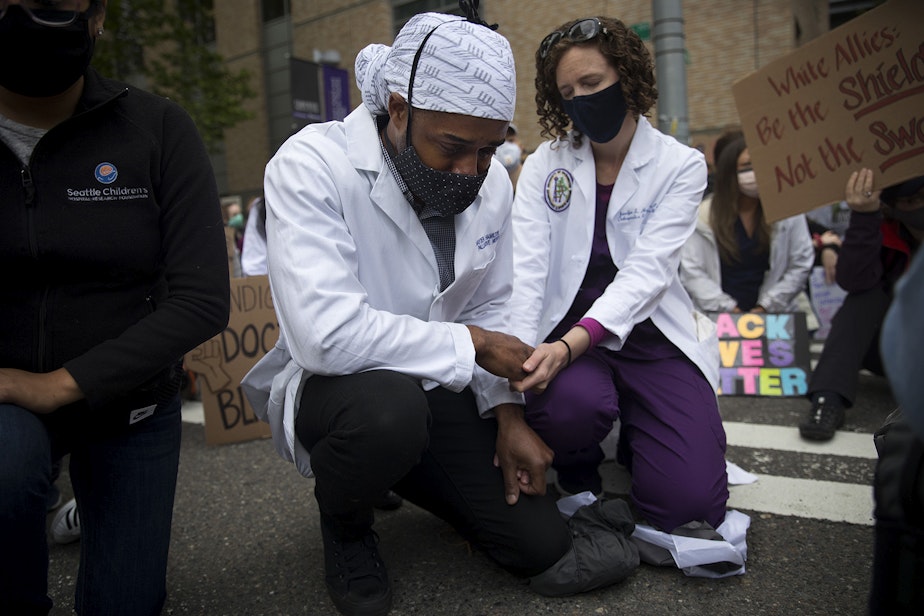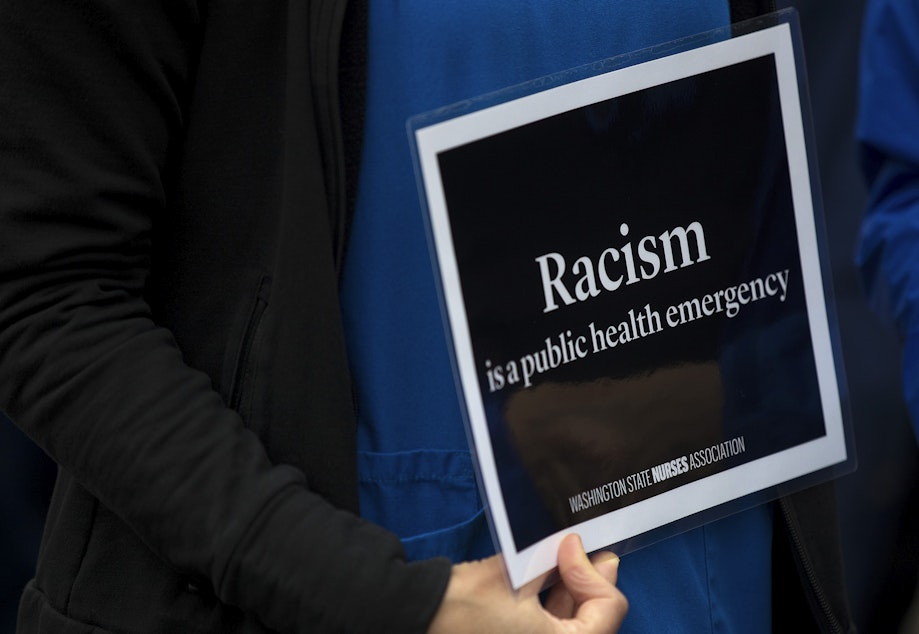Physician balances pandemic and activism: 'We need to think of racism as a disease'

Voices of the pandemic features people in the Seattle area who are on the front lines of the coronavirus outbreak.
Thousands of nurses, doctors, and health care workers came together to protest police violence over the weekend in Seattle. One of the organizers shares what motivated her so speak out.
My name is Estell Williams. I am a general surgeon at the University of Washington, where I work in emergency general surgery.
The march was really to address police violence as a public health emergency. And we thought what better way to amplify that message then as healthcare workers coming together. A lot of times we don’t share all of our experiences with our white colleagues because it feels like it's a burden to try to explain it.

So I was riding in the car with my dad, and I couldn't have been any more than like nine or 10.
Sponsored
Driving just a few blocks away from home, we were pulled over by the police and I distinctly remember when we were pulled over them asking for my father to step out of the car and watching him face down on the hood of the car before he was subsequently placed in handcuffs and taken to the police car.
And I remember sitting in the backseat of the car and looking out the back window, hoping that they would let him go. And they didn't. My mom came to pick up the car to bring me home, and I remember laying in bed all night wondering if I would ever see my dad again.
I didn't understand what was happening. I just knew that I was afraid for my dad. And when he got home the next day, that relief of seeing his face again.
My dad was never charged with anything.
I think at times like this sharing stories, allows people to understand what we are going through. The same way patients share stories with us, which allows us to treat them.
Sponsored
We need to think of racism as a disease as well. Sharing our stories allows us to treat the disease.
There is an inherent altruism that exists in medicine when we want to do right we want to do right by our fellow man.
I think for a lot of people, they didn't know what their place was in activism in politics.

What we had to realize was medicine, hospitals, clinics, it isn't neutral. It is an extension of our society. And we have to be involved in if we truly want to impact the health of our patients.
Sponsored
So for me, all of this is very personal, because I really do envision a world that will be different for my daughter.
And just like those before me fought to make it different so that I could be a physician today, which is something that was unheard of for my father.
I want that sort of future to be bright for my daughter as well.

We're collecting short, first person stories for our series Voices of the Pandemic. We'd love to hear about a moment or decision you faced recently, maybe something that shows how you're experiencing this crisis. Reach reporter Esmy Jimenez via email at esmy@kuow.org
Sponsored
Producer Alec Cowan composed music for this story.

